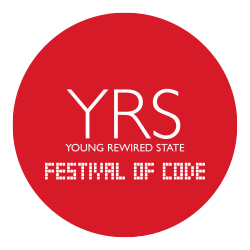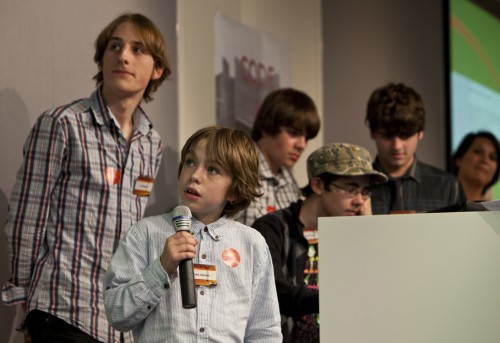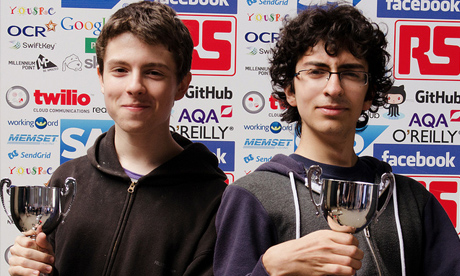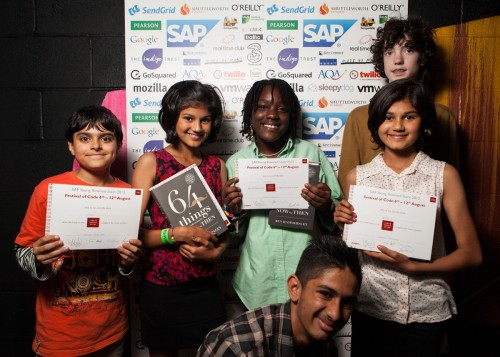|
The Man Booker Prize for literature is one of the most prestigious awards in publishing and very often the winners go on to critical success. Any author can be considered, as long as their work is in English and published in the UK. Today, the longlist of the class of 2014 have been unveiled, and gives us an indication on some of the most essential reads of the year. The 13 books themselves are selected by six judges chaired by philosopher Anthony Grayling. They selected four books by Americans, six Britons, two Irish writers and one Australian. One of the most interesting books on the list was The Wake by Paul Kingsnorth. The premise of The Wake is a historical novel set in 1066 and written in what the author calls "shadow tongue", a mix of modern and Old English. It follows a band of English resistance fighters battling the invaders in the decade following the Norman Conquest. The Wake has a very compelling premise, but what it took to get it published was Man Booker first. Paul took to a new literary service called UNBOUND, which allows authors to pitch their books to the crowd and people can kick in in sums of £5 to £300. Think of it as the Kickstarter of book publishing. The author raised £14,000, and Unbound markets, distributes and handles the book being in your local store, taking a 50/50 cut with the author. In its three years, Unbound has successfully funded 65 books and 40 of those have so far been published. The biggest hit to date has been Letters of Note, a UK best-seller. To Rise Again at a Decent Hour, Joshua Ferris (Viking) The Man Booker, which is awarded to the best novel of the year in the opinion of the judges, is worth £50,000 to the winner. Previous winners include Hilary Mantel for Wolf Hall and its sequel Bring up the Bodies, and two novels where sales have topped two million copies each, Schindler's Ark by Thomas Keneally and Life of Pi by Yann Martel. The judges will meet again to reduce their longlist to a shortlist of six titles which will be announced on Tuesday 9th September. The winning novel will be revealed on the BBC television's Ten O'Clock News direct from a black-tie dinner in London's Guildhall on October 14.
The Man Booker Prize Longlist Announced is a post from: Good e-Reader |
A Semi-automated Technology Roundup Provided by Linebaugh Public Library IT Staff | techblog.linebaugh.org
Wednesday, July 23, 2014
The Man Booker Prize Longlist Announced
Bublish Secures New Round of Investment Funding
|
That’s where sites like Bublish come in, bringing with them the opportunities for authors and readers to connect over like content and common interests in reading material. But more than just a place for discussion to happen, Bublish is also building author tools, like the ability to build an email list for targeted announcements and the chance to offer pre-orders. Bublish, who’s known for its targeted social interaction in which authors and readers connect through book “bubbles,” recently announced it had secured a $300,000 investment in its latest round of private funding, which will allow the company to expand its current features while exploring new capabilities that put control in the authors’ hands. According to the company, this funding round will be earmarked for projects that include “developing a suite of powerful creation and book promotion tools for publishers, additional social media integrations and book distribution services, expanding marketing capabilities and reach, and increasing business development partnerships with key publishers and industry influencers.” "This investment is a huge endorsement of the Bublish platform," said Kathy Meis, Bublish Bublish has operated under its concept of “authorpreneurship,” meaning their focus is to empower authors with the equipment to not only be writers, but to be businessmen in charge of their own products as well. Bublish Secures New Round of Investment Funding is a post from: Good e-Reader |
Comixology Offers Publishers a DRM-Free Digital Comic Strategy
|
When you pay for comics via Comixology there actually is no ownership. In effect, you are merely paying a licensing agreement to read the comics on your computer, tablet or ereader. The comics are not stored locally, but instead need internet access to download from the server and read them on their official apps. This might change, as Comixology is rumored to be talking with publishers to incorporate DRM-Free comics into their ecosystem. The clear path of ownership is a big deal with digital comic book fans. Image Comics was one company that went completely DRM-Free and has been a big hit. Ownership of the comic you purchased is very real and tangible, giving readers the ability to back them up locally or use another app to read them on. When Amazon purchased Comixology earlier in the year, the mandate was to make it the most dominant distribution platform in the world. This has been somewhat hampered with in-app purchases being removed from their iOS app and Android app changed from using Google, to Comixologies own e-commerce solution. Madefire is quickly gaining traction with their free motion comics and even Image Comics have created their own distribution system. In order to get more publishers into the fold, Comixology is said to be shopping around the DRM-Free solution to companies wanting to opt into it. Image would obviously be on board, although DC and Marvel would be likely holdouts. The intention is to appeal to publishers who either don’t deal with DRM, or want to abandon it altogether. The San Diego Comic Con is transpiring really soon, and likely more news will service as Comixology has meetings with the whose who of the comics industry. Comixology Offers Publishers a DRM-Free Digital Comic Strategy is a post from: Good e-Reader |
Apple iPad Dominates North America
|
The complete line of Apple iPads are totally dominating North America. It is said that they control %78 of the total market and everyone elses market share is fairly negligible. Chitika Insights published its latest figures on the tablet market in Canada and the United States. The firm basically tracks internet traffic from tablets to gauge what devices are the most popular for mobile web browsing. The report also notes that the Amazon Kindle Fire, has an abysmal one tenth the share of iPad, has moved into second place ahead of Samsung and Google, both of whom are selling ‘pure Android’ tablets. Apple’s iPad share is only down slightly from peak figures from last year, despite relentless discounting by competitors and frequent promotions that give tablets away. Amazon frequently mentions their monthly payment program, where customers can pay off their device a few dollars at a time, in monthly installments. IBM and Apple recently reached an agreement to co-develop a series of next generation business apps. This should appeal more to the corporate crowd and should further cement Apples market position. Apple iPad Dominates North America is a post from: Good e-Reader |
REVIEW: Liberio eBook Publication Platform
|
Unfortunately, the reality was a little less exciting. Heading over to liber.io only a little while ago, the very first issue was that Mozilla freaked out about letting me use the site. Two different warning screens came up telling me that Mozilla couldn’t verify the security of the site, and even after telling Mozilla, “It’s okay, I got this,” it was slow and iffy-looking. I logged in with my Google+ account and established a new password, and I appreciated the fact that Liberio pointed out this new password would in no way affect my Google+ password. After giving Liberio permission to access my contacts list, my email, my DNA sample, and my second grade report card, I was in. Unfortunately, clicking on the only thing that looked like an “Add new file” option didn’t do anything for the first five minutes or so. I finally refreshed the screen twice and it came to life. The interface is very intuitive, I must say, but it’s not very functional. By clicking on the very large icon that resembles a piece of paper with a plus sign in it, I was finally given a box that let me choose a file from my Google Drive account or directly uploads from my computer. I chose the upload option, selected a manuscript I’ve been playing around with, and waited. Then complete code filled the box on the screen. Instead of seeing my ebook, absolute gibberish took over. Unfortunately, despite the presence of a trash folder, I can’t see any way to remove the file I uploaded. I right-clicked, I dragged, I sacrificed a small woodland creature…nothing. As an author who now has an unpublished manuscript floating around the internet with no discernible way to remove it, I’m more than a little put out right now. Now some of you may be chuckling to yourselves and shaking your head at my own ebook incompetence, and I welcome your laughter. It’s quite obvious that either Liberio or I didn’t do something right. Given that Liberio just moved out of private beta per TechCrunch’s announcement, there are kinks that are possibly still being worked out, but if my own misunderstanding of the system was at fault, then I have to say it’s not as intuitive as I thought. My final assessment is that it will be a powerful tool when it works correctly, and anything that gives authors even better tools is fantastic. I also see tremendous potential for the educational arena, both higher ed and the K12 sectors, as teachers could easily create ebooks of content for their students. And with more and more schools instituting Bring Your Own Device initiatives, ereading is gaining a lot of traction in public schools, meaning teachers can incorporate a lot of original content in the process. Overall, when it works perfectly, this could be something of a game changer. REVIEW: Liberio eBook Publication Platform is a post from: Good e-Reader |
YRS Festival of Code 2014 – around the UK and at Pi Towers
| Young Rewired State is a network of coders around the world. Every year an event is held in the UK to give young people the opportunity to collaborative while working on a project to make something interesting with open data, and to learn skills while exposed to new technologies.
The Festival of Code is a week where volunteer-led centres around the country play host to local kids (18 and under) who work in teams, guided by mentors from industry, to create a software application, a web app, a game, a phone app or even a hardware hack that utilises an open data set to provide a solution to a real world problem. It takes place next week: 28 July – 3 August 2014. Participants spend most of the week at their local centre where they’re introduced to each other and to the mentors, they’re shown some data sets they have available, they get in to teams and start working on their project. Throughout the week they are introduced to new technologies and given short talks from mentors and other volunteers to help them find the right tech to solve their problems. On Friday all centres travel to Plymouth for the weekend where they present their projects.
Last year the overall winners of the Festival of Code were Tom Hartley and Louis Brent-Carpenter, whose hack was a service to provide navigational and other information to cyclists using a series of handlebar-mounted LEDs – powered by a Raspberry Pi – known as PiCycle.
Alongside Best in show there are other categories: Best example of code, Best example of design, Code a better country, and the Should exist award. I’d just like to point out that the winners of last year’s Best example of code were mentored by me in Manchester: contag.io.
Here’s a video showing my centre’s experience:
If you’re 18 or under and want to participate, sign up at festivalofco.de now. We’re running a centre at Pi Towers in Cambridge – so if you’re local to us you’ll be assigned to our centre and you’ll be lucky enough to spend a week at our offices! If you’re over 18 (even quite a lot over 18) you can sign up as a mentor - centres can always use an extra pair of hands, and you’ll have a great time! Oh, and Stephen Fry is a fan: There are also YRS events in Berlin, New York City, Singapore and elsewhere! |
Win a Sony PRS-350 with Good e-Reader
|
Welcome back to another Good e-Reader exclusive contest. Today we are giving away an e-reader we just found in our review labs, the Sony PRS-350. The Sony PRS-350 and 650 were the most popular Sony e-readers the company ever produced. When they were first released on August 2010, they couldn’t keep them in stock on the retail level, due to ravenous demand. I really liked the five inch display because it made it really pocket friendly. The resolution is 800×600 and features a touchscreen to flip the pages of your favorite book. There is no WIFI built into it, so you will have to load in your own PDF or EPUB books. The 350 is in fairly great condition, as it was just used for the purposes of unboxing, reviewing and comparing against other readers on the market. In order to enter, you merely have to subscribe and like our YouTube channel and comment on the video, letting us know you have done all of the above.
Win a Sony PRS-350 with Good e-Reader is a post from: Good e-Reader |
Companies and Users Flocking Back to Blackberry
|
Blackberry is betting big on their new line of smartphones, headlined by the Passport. It bears a resemblance to the Bold, but with a larger screen and a more intuitive keyboard. The Waterloo company is also winning back corporate clients who are disenchanted with the entire concept of bring your own device. One of the big concerns over Blackberry and the primary reason many corporations have switched away was due to the app ecosystem. Many of the top apps like SalesForce and Teamviewer do not have native apps and these are essential to doing business. In order to win back customers Blackberry signed a new agreement with Amazon to bundle their phones with the Amazon Appstore, as the primary destination to download content. This will open up the availability of a wider selection of apps and make it easier for your average user to install what they want, without having to sideload anything. At a well-known investment firm in New York City, something strange is happening: Mobile app performance issues and privacy concerns have sparked a Bring Your Own Device (BYOD) revolt, and now many employees are asking for their corporate BlackBerry back. “It’s a nightmare,” says an IT executive speaking on condition of anonymity. Battery draining, stress on the corporate servers from many different devices are hindering app updates and providing security. “Things like this drove a wedge between IT and the users,” says the IT executive. “We became Big Brother. Everyone was convinced that we were doing this because we wanted to see what the hell they’re doing. In reality, it’s all about protecting the data.” There is a movement now to step away from Android, iOS and Windows and embrace Blackberry once more. BlackBerry’s new BES10 and soon to be BES12 really takes care of many issues I.T departments are having now. Blackberry Balance helps segregate the work and personal life and new firmware updates will make them more viable. Companies and Users Flocking Back to Blackberry is a post from: Good e-Reader |










